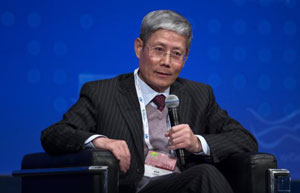Experts: Patent process needs update
By Sun Xiaochen (China Daily) Updated: 2014-04-28 07:16Local agencies' lack of knowledge of the international IP system and legal frameworks in overseas markets has forced major innovation companies to seek patents on their own.
Chinese telecommunication giant Huawei Technologies developed a 300-staff intellectual property rights department in 1995 and processed almost half the applications of its more than 30,000 international patents, said Cheng Xuxin, deputy director of Huawei's IPR department.
"When we have to apply for patents in overseas markets, we tend to entrust foreign attorneys or agencies, as local agencies lack the experience to handle foreign affairs," Cheng said during the symposium.
To help domestic agents improve their professional knowledge and skills, the patent attorneys association has introduced an online education system and requires its member agents to complete at least 16 hours of study to qualify for the annual verification.
Association President Yang Wu also stressed the importance of international exchange.
"Understanding the current global IP structure built by Western countries is crucial for Chinese agencies," he said.
Tao Xinliang, an IP professor at Shanghai University, said Chinese patent agencies should also expand their business scope to offer more value-added services.
"Our local agencies are relying heavily on operating patent applications for clients," Tao said.
"They should also develop services on litigation support, licensing, patent retrieval and IP training, which are all available services at IP agencies in the United States."
According to an analysis by the State Intellectual Property Office, only 20 percent of China's authorized patent agents provide services like IP assessment and legal consultation.
- Singapore retains top yuan offshore clearing center outside HK
- Overcapacity, slowdown bring steel industry losses
- S China footwear factory resumes production
- Brunei, China sign carbon steel pipe project
- Third party mobile payment thrives
- Alibaba takes youku stake
- Time to focus on growth quality, IMF says
- Cloud computing brings revenue to western region
















